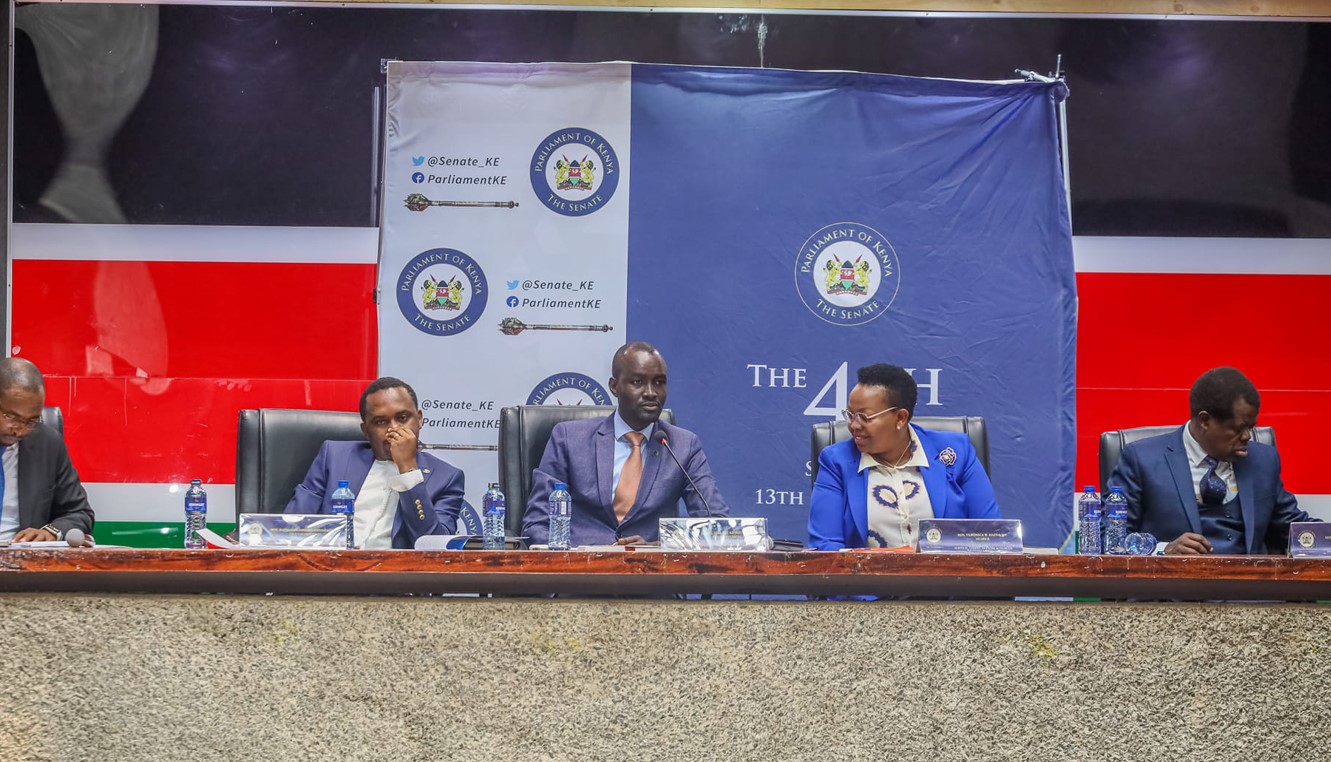Senate committee rejects Cherargei's Bill on leaders’ term limit extension

Currently, the Constitution limits presidential terms to a maximum of two five-year periods.
A Senate committee has rejected the controversial Constitution of Kenya (Amendment) Bill, 2024, which sought to extend term limits for elected leaders, following significant public backlash.
The Justice, Legal Affairs and Human Rights Committee delivered its verdict during a session on Thursday, stating that it would be untenable for the Senate to consider the Bill further.
More To Read
- Senator Cherargei slams Trans Nzoia MCAs for rolling out red carpet for Natembeya amid graft charges
- Senators call for stronger punitive measures against governors who snub summons
- Parliament urged to limit tenures of MPs, MCAs to two 5-year terms
- Over 99% of Kenyans oppose proposed extension of presidential term limits - Senate report
- ICJ Kenya faults proposal to extend term limits for elected leaders
- Senate email system crashes as 200,000 Kenyans respond to term limits Bill
Nandi Senator Samson Cherargei sponsored the Bill, which proposed increasing the term of service for the president, senators, MPs, MCAs, and governors from the current five years to seven.
The committee's report emphasised the overwhelming rejection of the proposal by the public, noting that 99.99 per cent of participants in the public consultation phase opposed it.
During the public participation exercise held at the Kenyatta International Convention Centre (KICC) in Nairobi, over 240,000 Kenyans submitted their views, causing the Senate's email system to crash due to the high volume of responses.
"Thank you for the overwhelming response to the Constitution of Kenya (Amendment) (No. 2) Bill, 2024. Due to high volumes of submissions, our email system has temporarily experienced issues," said Senator Hillary Sigei, the committee chairman.
Sigei urged the Senate to reject the Bill in its current form, stating that even if certain amendments within the proposal had merit such as those aimed at strengthening the Senate's role, they could not be separated from the broader context of the rejected Bill.
He suggested that a fresh Bill should be introduced if any provisions were to be considered for future support.
In its recommendations, the committee proposed that any constitutional amendment should be accompanied by the signatures of at least 15 per cent of the senators in support, although this requirement would not apply to Bills sponsored by either the majority or minority party.
Currently, the Constitution limits presidential terms to a maximum of two five-year periods.
Additionally, the rejected Bill aimed to create the office of Prime Minister, mirroring proposals from the National Dialogue Committee and the Building Bridges Initiative.
According to the Bill, the president would appoint the Prime Minister from among parliamentary members, who would be the leader of the largest party or coalition in Parliament.
The proposed legislation also sought to enhance the Senate's powers by granting it the exclusive mandate to vet certain state officers, aiming to elevate its role within the bicameral legislature.
However, the Senate has often been viewed as having a limited mandate compared to the National Assembly.
As the Senate now considers the committee's recommendations, attention will be focused on whether the full House will adopt the committee's report and formally reject the controversial term limit extension Bill.
Top Stories Today
















































